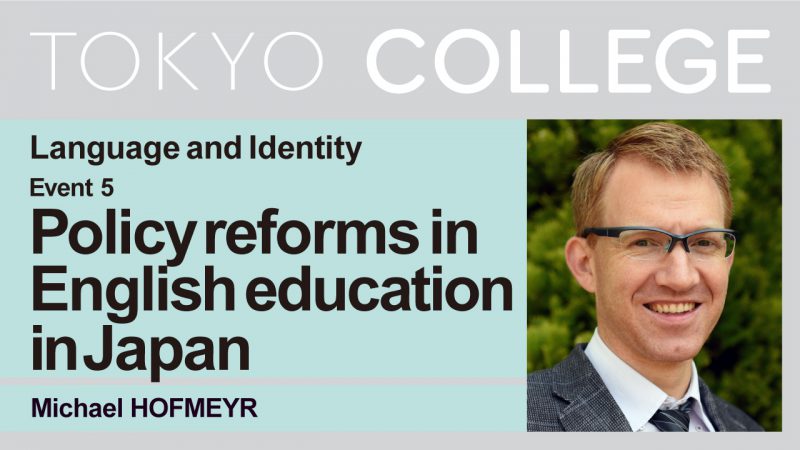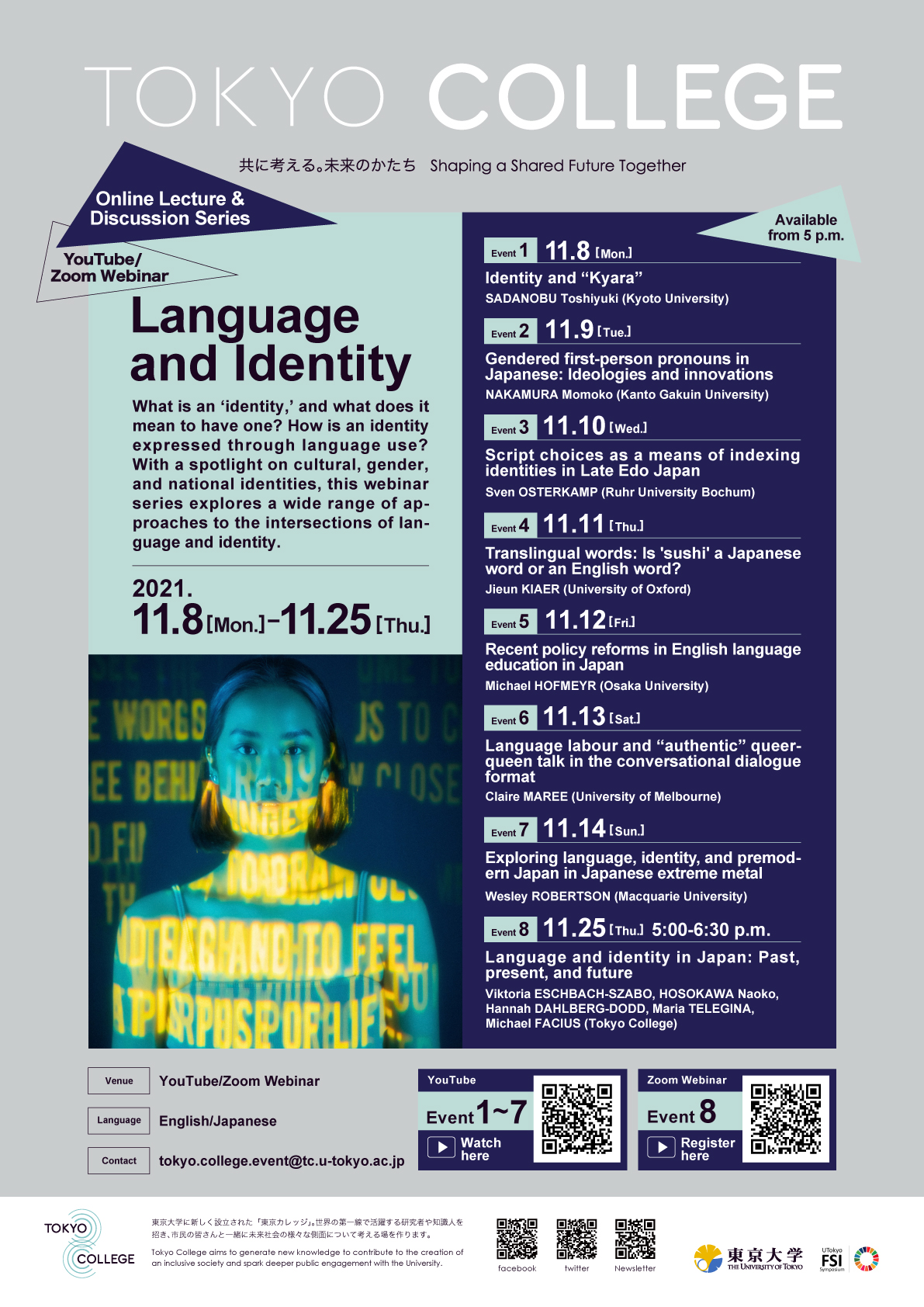Language and Identity Series Session 5: “Recent Policy Reforms in English Language Education: Towards a New Generation of Bilingual and Multicultural Japanese?”

| Date(s) | Friday, 12 November 2021 (available from 17:00 JST) |
|---|---|
| Venue | |
| Language | English (with Japanese simultaneous interpretation) |
| Abstract |
For decades, the Japanese government has devoted considerable resources to English language education at the school level, for example by funding the JET Programme since the late 1980s. In spite of such substantial investment, attainment levels have remained stubbornly low. In order to address these disappointing outcomes, the Ministry of Education, Culture, Sports, Science and Technology (MEXT) has been implementing a series of policy reforms affecting language pedagogy throughout the school system. In 2003, it laid out its revised aims and several concrete measures in an Action Plan to Cultivate ‘Japanese with English Abilities’. These aims included revising the official curriculum guidelines for English education so as to place a stronger emphasis on Japanese culture, history, and lifestyle, rather than focusing solely on the cultures of Anglophone countries. The most recent major reform was implemented between 2018 and 2020. This involved a threefold increase in the number of compulsory hours of English instruction at the elementary school level. In the initial phase of our project, we aim to critically analyse selected policy documents published by MEXT since 2003 in order to (1) identify the stated aims, to (2) identify the pedagogical approaches prescribed for reaching those aims, and to (3) determine whether these approaches are sound and likely to produce the intended results. Since the aims described in these documents pertain both to language learning and to identity development, in our evaluation we will draw on theoretical approaches from the fields of second language acquisition and social identity theory based on the notion of ‘culture as identity’. Furthermore, we will (4) consider contextual aspects particular to the Japanese education system that may help or hinder the achievement of the desired outcomes. |
| Program |
Speaker: Michael HOFMEYR (Specially Appointed Associate Professor, Graduate School of Language and Culture, Osaka University)
Commentator: HOSOKAWA Naoko (Postdoctoral Fellow, Tokyo College)
Moderator: Maria TELEGINA (Postdoctoral Fellow, Tokyo College) |
| Organized by | Tokyo College, The University of Tokyo |
| Contact | tokyo.college.event@tc.u-tokyo.ac.jp |















